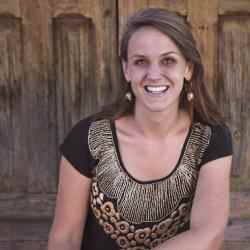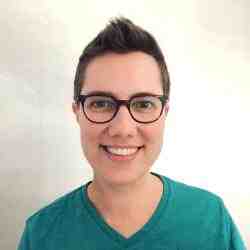Introduction
Through the promotion of breastfeeding and the preparation of indigenous, nutritious baby food, Ines is building a mother-led movement to improve infant and young child feeding and maternal nutrition in the Philippines.
The New Idea
Ines Fernandez is tackling malnutrition among infants and young children by empowering and mobilizing the most vital and direct stakeholders of this problem—mothers. In the face of aggressive advertising by baby food companies, Ines realized that informed mothers can be the most credible and effective messengers about nutrition to other mothers. Through her organization, Arugaan (a Filipino word that means to “nurture fully”), Ines is empowering young and old mothers alike to understand the benefits of breastfeeding and nutritious baby food preparation with locally available ingredients. The trained mothers that make up Arugaan’s team serve as experts in lactation and nutritious food preparation to communities and trigger the creation of mother-to-mother support groups to spread best practices. Ines’ team works simultaneously with health professionals and day care providers to adopt and support these practices as a say to reinforce a new pathway to improved child and maternal nutrition.
Building from her work in mainly urban areas, Ines is now focused on increasing nutrition outcomes and resilience among mothers in rural communities, particularly those most vulnerable to frequent natural disasters. By extending the presence of mother-to-mother support groups in these areas, Ines is helping mothers adopt breastfeeding and local food preparation as way not only to reduce the cases of malnutrition, but also increase their own resilience. The mothers become empowered to create their own locally available baby food and breastfeed. In doing so, they avoid the traps that come from the use of formulas and processed foods both in terms of their expense and risk of supply disruption during disasters. Ines also helps the mother-to-mother groups become advocates for spreading what actions to take during disasters to keep themselves and their babies alive and well.
Through the network of mother-to-mother groups and her team’s work with health professionals, Ines is creating a more mother-baby friendly environment in homes, communities and in the healthcare system while reducing the cases of malnourishment and even mortality caused by inadequate infant and child feeding practices.
The Problem
According to UNICEF, 16,000 babies in the Philippines die annually due to malnutrition. Considering that the World Health Organization (WHO) recommends that babies receive nothing but breast milk for the first six months of life for its health benefits, only one-third of children under six months are exclusively breastfed. Around one-third (35%) of the youngest infants (those 0-1 months) are being bottle fed, as are more than half of infants from 12-23 months. Because of the decline in breastfeeding, many young children and even mothers do not receive the positive health benefits accompanying breastfeeding—including physical and mental health.
In l986, the Philippine government issued an executive order (E.O. 51) that prescribed a new Milk Code which “ensures safe and adequate nutrition for infants through the promotion of breastfeeding and the regulation of promotion, distribution, selling, advertising, product public relations, and information services artificial milk formulas and other covered products.” Despite this and other government efforts, however, implementation of the law has been lacking. Many milk formula and artificial baby food companies continue to aggressively promote their products through targeted mass media. As a result, many mothers, particularly those in marginalized communities with little access to counter-information, to believe that using such products is equivalent to good parenting.
The frequent effects of natural disasters in the Philippines translate to even greater food insecurity and risk of malnutrition for women and their newborns. Annually, approximately 19 typhoons enter the Philippine region with 6-9 making landfall, according to the Joint Typhoon Warning Center (JTWC). Aside from being the country most exposed to tropical storms in the world, other natural disasters occur such as earthquakes, volcanic eruptions and cyclones, due to its location along the Pacific Ring of Fire. Millions of Filipinos experience these calamities, and the most susceptible ones are those who live in areas with high levels of poverty. During such crises, food supply chains are often disrupted for prolonged periods of time with acute impact on infants who are fed milk formula and processed baby food.
In disaster-stricken areas such as Leyte in the Eastern Visayas, where 50 percent of survivor children are reported to be malnourished following Typhoon Haiyan in November 2013, most storm victims were displaced to evacuation centers where the Department of Social Welfare and Development gave formula milk to every mother with an infant, whether or not the mother was previously breastfeeding. In those situatios,, mothers are left to rely on donations, lacking guidance and support for continuing or re-instating breastfeeding and instead rely on bottle-feeding, mixed feeding or using non-nutritious processed foods to compliment. As disaster situations also compromise access to clean water, infants are also put at risk for water-born infections that can further compromise their health.
The Strategy
Ines created Arugaan to serve as a core group of volunteer mothers who are trained and knowledgeable about proper breastfeeding practices, healthy indigenous food, and relactation counseling. They run specialized daycare services, organize nutritional and healthcare programs for women and are active in training mothers in both rural and urban communities transforming them as nurturers and leaders. As part of this work, the members of Arugaan’s team identify women leaders in the communities and guide them in starting their own groups and platform to reach more mothers. Ines’ approach to mother-to-mother support has included mothers who are doctors, public health officers, nutritionists, support group leaders, housewives, young professionals and others across different economic classes. Ines’ mentorship of many such groups has helped build an ecosystem to support increased breastfeeding and indigenous baby food preparation. A few of them include MommySense in Davao, Mom & Baby Club in Cebu, and CDO Mommy Brightside in Cagayan De Oro. Some of them have started projects beyond the typical mother-to-mother support groups such as the leading online platform, the “Breastfeeding Pinays” with some 20,000 members.
Arugaan is currently focused on more marginalized communities, particularly in rural areas and especially those affected by frequent natural disasters in the area of Eastern Visayas (middle island group in the Philippines). As emergency response, Arugaan’s team attends to the target communities in three phases. First, they choose which communities to target based on the National Nutritional Council’s list of most disadvantaged and devastated communities. They do a preliminary examination to assess the state of the children and the mothers, making contacts and coordinating with community leaders and health workers for their next visit. Next, they put up temporary two-day centers for mothers and babies 2 years old and below. They provide informational materials translated to their native language, and gather the mothers and their babies where they hold form clusters. Each cluster is facilitated by a mother trained as an Arugaan team member who conducts lactation counseling, relactation management (going from bottle-feeding back to breastfeeding), as well as cooking and preparation of indigenous food for mother and infant. Throughout these activities, they start identifying potential mother leaders. Beside the breastfeeding tent, a mobile crèche is established where the young children are fed and attended to. In their last phase, Arugaan guides these mother leaders to name, form and continue their support groups to ensure that they continuously apply what they have learned, and to take an active role in creating a mother-baby friendly environment in their homes and communities. As they rebuild their areas, Arugaan team members guide and help the community mothers plan the programs in their own neighborhoods promoting breastfeeding and nutrition. They also involve their local health officers to make sure that the health centers are partners in supporting the groups. As an example, the health center in Leyte province has started its own breastfeeding pop-up center. Between 2013 and 2014, more than 6,400 mothers from 10 municipalities have received training and begun to create support groups of their own to reach many more.
To support her work, Ines also cultivates a wide network beyond the Philippines through the International Baby Food Action Network (IBFAN) and the World Alliance for Breastfeeding Action (WABA). Locally, she represents Arugaan in the Save the Babies Coalition and the National Nutrition Cluster convened by UNICEF, the Department of Health (DOH), and the World Health Organization (WHO). Through these networks, she keeps Arugaan involved and educated about the issues and latest research about breastfeeding and nutrition. At the same time, Arugaan provides these networks up-to-date information on the situation of infant and young child nutrition in the Philippines. The connection with these networks has been useful in keeping their material relevant and updated during their breastfeeding and nutrition outreach.
The Person
Ines Fernandez, also known as Nanay Ines (which directly translates to “Mother Ines”) to many of the people she meets, has been involved in promoting breastfeeding and nutrition since the 1980s. Born in Magarao, Camarines Sur, Ines is the youngest child to two public school teachers who were active in the community as local church leaders. Her mother taught her how to inspire and mentor other mothers. Her father taught her different methods for planting and harvesting natural food. Some of her father’s fruit trees are the same trees that she still harvests fruits from today and shares with the communities she visits.
When Ines was pursuing her master’s degree in Broadcast Communications at the University of the Philippines in the early 1980s, her friends approached her for help with a radio program. She created the communications plan for the consumer rights advocacy group Citizen’s Alliance for Consumer Protection. She became exposed to the controversy surrounding baby food marketing and became an advocate for consumers’ rights, particularly mothers, and began documenting cases of misleading advertising in the Philippines. She met and became involved with the International Baby Food Action Network and studied more about breastfeeding from international sources, as there were no local resources available. She also joined the National Nutrition Council (NNC), where she became more active in promoting breastfeeding which coincided with the birth of her first child.
Ines mobilized a number of like-minded leaders and organizations to start BUNSO, “Youngest,” in 1983– a coalition of people’s organizations and NGOs focusing on mothers’ and children’s rights. UNICEF Manila took notice of BUNSO and provided it with funds to undertake breastfeeding trainings in urban poor communities. This led Ines to organize the first mother support group whose members are now the pioneers of Arugaan’s training team called BEST—Breastfeeding Experts Support Team. It was through this group that Ines and the leaders she cultivated led the efforts behind the three breastfeeding support measures that the Philippines government has approved thus FAR: an Executive order (E.O. 51), which regulates the marketing of breast milk substitutes, and two Republic Acts: one (R.A. 7600), which provides for the practice of rooming-in babies with their mothers shortly after birth, and another, the Expanded Breastfeeding Promotions Act of 2009. With these measures in place, Ines' focus is to ensure their effective implementation through the empowerment of mothers groups across the country.




